'They're not forgotten anymore'
Warning: Aboriginal and Torres Strait Islander people, please be advised the following article contains names and images of deceased people.
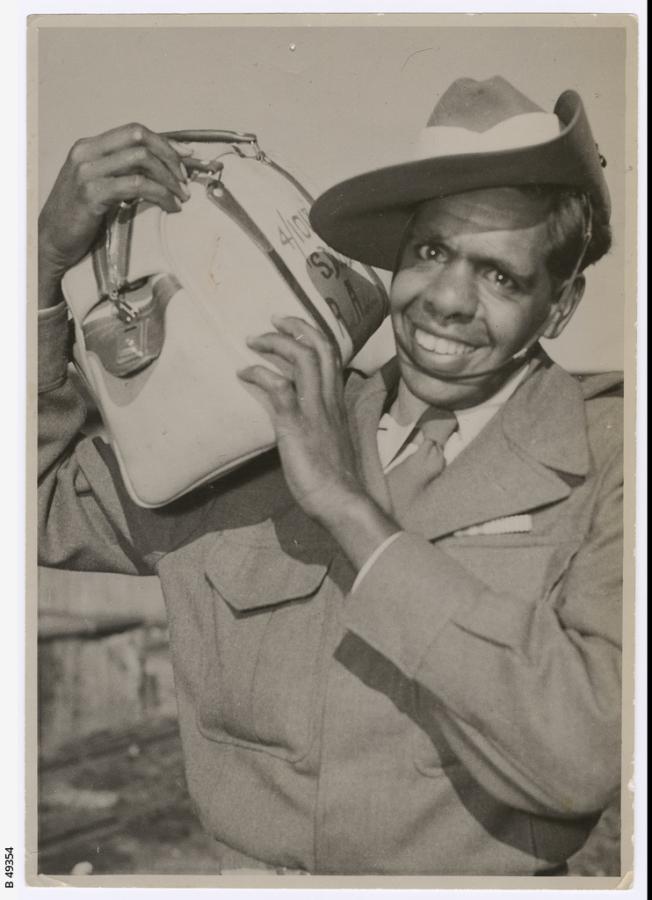
Stephen Mullawalla Dodd put his acting career on hold to serve in Korea. Photo: Courtesy State Library of South Australia
Stephen Mullawalla Dodd featured in some of Australia’s most iconic films and television shows, but he put his early career on hold to play a little known role in the Korean War.
“Being in the army was one of the best times of my life,” he said in an interview in 2011. “I made lifelong friends and got to travel the world.”
Today, the actor is recognised as one of more than 60 Indigenous Australians who served in Korea.
Australian War Memorial historian, Korean War expert Michael Kelly said it was important stories like Dodd’s were told.
“Stephen Dodd was a legend of Australian film and television,” Kelly said.
“And he was one of the first really well known Australian actors who graced our screens for decades.
“But today little is known about his early life or his service in the ‘forgotten war’ in Korea.”
An informal portrait of Dodd at Camp Casey, South Korea, in March 1953.
Stephen Dodd – also known as Mullawa or Mulla walla or Mullawalla (flying fish) – was an Arrernte man from central Australia.
It is unclear whether he was born in the Northern Territory or South Australia. Some sources suggest he was born in Alice Springs, but others suggest he was born at the Hermannsburg Mission, to the town’s south-west. Another suggests he was actually born at Oodnadatta, in the far north of South Australia. But a further source, states he was from Coober Pedy and had been a resident of the Colebrook Home for Aboriginal Children outside Quorn in the Flinders Ranges. While Dodd himself stated that he was the “first Aboriginal to sign up from South Australia and go to Korea”, it was said that even he did not know exactly where or when he was born. The only birth date recorded is in the Korean War nominal roll, which gives his birth date as 1 June 1928, and his place of birth as Oodnadatta.
After working as a stockman, horsebreaker and rodeo rider, Dodd was given his first film roles by prominent Australian actor Chips Rafferty.
Dodd first appeared in The Overlanders in 1946, a film set in the northern Australian bush during the Second World War. When Rafferty noticed Dodd on the set, he arranged for him to have a minor role in the film.
It was the first of three Rafferty movies that Dodd would appear in, the second being Bitter Springs, about a family of white settlers fighting to take possession of land and resources from an Aboriginal clan. Released in 1950, it was notable for being “a serious study of the relations of white settlers and Aborigines” and “more honest than most Australian film-makers ventured to be at that time”.
Dodd was working as a tracker and interpreter for actor Michael Pate when Rafferty arranged for him to have an on-screen role. Rafferty also starred in the American production of Kangaroo in 1952, the film that gave Dodd his third on-screen role.
Troops of 1RAR line the rails of the ship New Australia as it leaves the wharf to return home to Australia. Dodd is pictured eleventh from the left.
Dodd put his acting career on hold to sign up for service in Korea.
“He’s already established himself as a bit of an actor prior to volunteering for Korea,” Kelly said.
“He’s spotted on a film set by Chips Rafferty and offered a part, which then grows into something bigger, so he’s already done several films by the time the Korean War starts. And then he volunteers for service as part of K Force, and goes over to Korea with the 1st Battalion, the Royal Australian Regiment (1RAR), as a rifleman in April 1952.
“1RAR are over there during what’s called the ‘static war’, but it’s anything but static, because they are out there raiding, patrolling, and trying to capture prisoners ...
“In the time they’re there, there’s a pretty nasty winter as well. They endure it, but it’s not the best place to be in – it’s either really hot, or really cold, and there’s not much in between.
“A lot of the work they do is at night time because any movement above the ground in daylight usually invites the Chinese to shoot at them, and generally, it’s with artillery pieces, so it’s an incentive to keep your head down.”
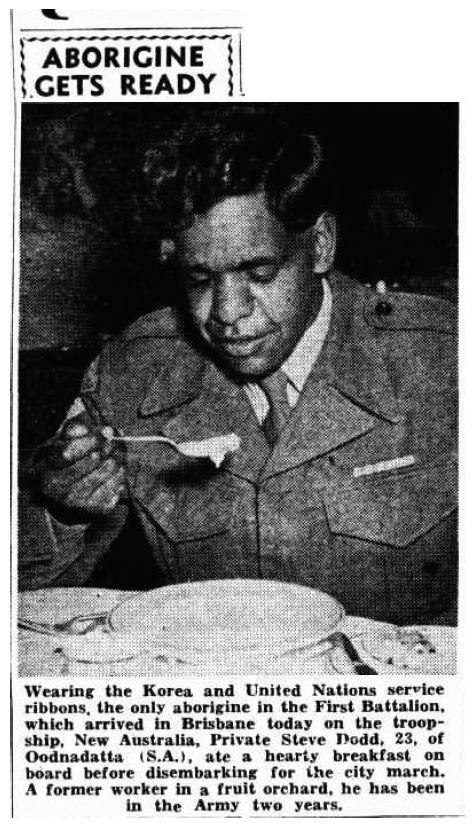
Dodd featured in a newspaper article in the Brisbane Telegraph, 6 April 1953.
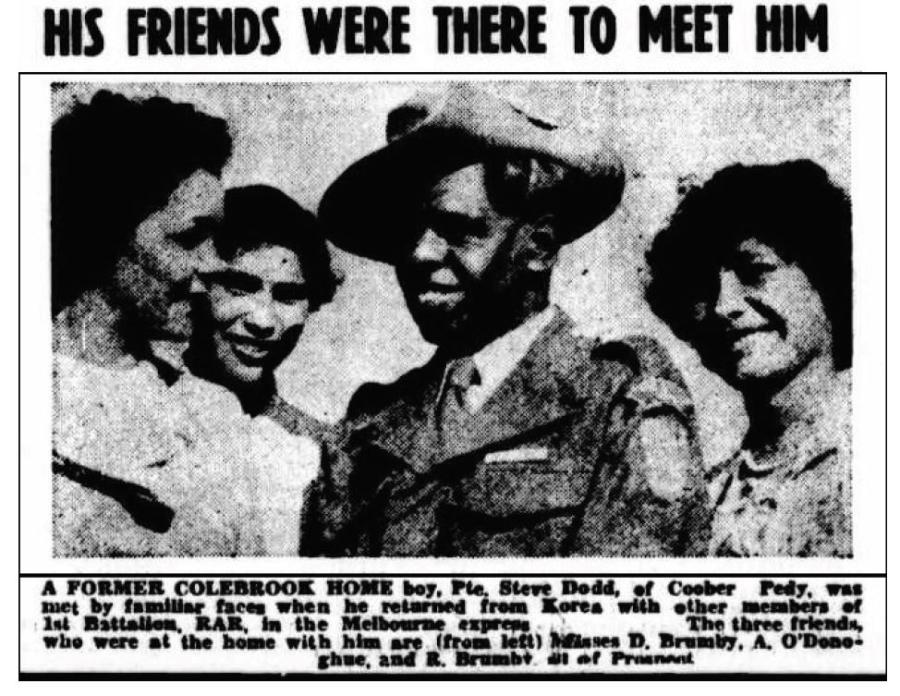
Dodd also featured in an article in the Barrier Miner, Broken Hill, 13 April 1953.
Returning from Korea, Dodd transferred to the Royal Australian Army Ordnance Corps, completing his term of service in early 1957.
“He’s quite a character,” Kelly said.
“He had no real need to go to Korea, so there must have been something in his makeup, or something he saw perhaps growing up during the Second World War that made him want to serve, and that’s a fairly noble reason to want to go.
“He’s already getting paid work as an actor, and being offered opportunities in film, so he’s very much putting that at risk by going to serve in Korea, and then he goes on to really carve out a niche for himself in film...
“Whilst he’s in Korea he would have served the same way as anybody else and would have had a good corps group of mates.
"That bond between mates is pretty strong, especially within sections and platoons. They would have seen themselves through their service in Korea together, because you’re basically relying on the person in the next part of your bunker or foxhole or patrol to see you through, and they are relying on you to do the same.
“He would have been seen as a bloke who did his job, just like anybody else. It doesn’t matter what colour you are, once you’re in, you’re in, and you’re there to support each other. The only colour you have is the uniform of the arm of the service that you are in.”
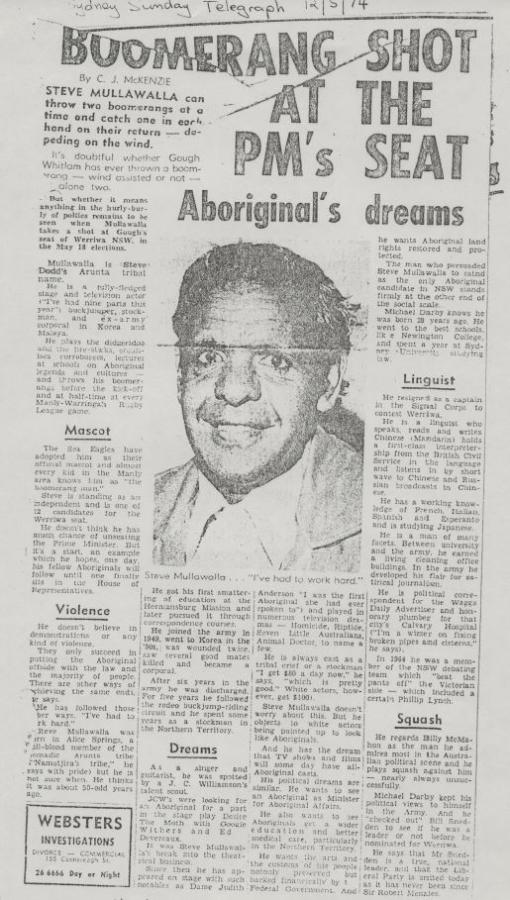
Dodd also featured in an article in the Sydney Sunday Telegraph on 12 May 1974.
Dodd went on to appear in several major Australian movies, including Gallipoli (1981), and The Chant of Jimmie Blacksmith (1978), in which he played Tabidgi, the murdering uncle of the lead character. He appeared in Ground Zero (1987) – a thriller based on claims Aboriginal and Torres Strait Islanders were used as human guinea pigs during the British nuclear tests at Maralinga in the 1980s – and had minor parts in Australia-based international film productions, including The Coca-Cola Kid, Quigley Down Under, and The Matrix. He also appeared in early Australian television series, such as Homicide, Skippy the Bush Kangaroo and Rush, and later The Flying Doctors.
By 1985, it was said Dodd had appeared in more than 50 movies and television shows.
Indigenous actor, historian and activist Gary Foley, said Dodd used to joke that “he was sick of roles where his total dialogue was: ‘He went that way, boss!’”
Dodd was awarded the Jimmy Little Lifetime Achievement Award at the 19th Deadly Awards at the Sydney Opera House in 2013. Departing from tradition in presenting the award to someone who was not primarily a musician, the organisers said Dodd was “an actor that created a pathway for others across the entire arts and music sectors to follow, at a time when typecasting stereotypes and discrimination was the norm in Australia's arts industry”.
Dodd died in November 2014. He was described as “nature’s gentleman”, a great actor and a great man, loved by all.
David Williams, the then President of the NSW Aboriginal and Torres Strait Islander Veteran's Association, said “Uncle Steve Dodd had an aura, a smile and a confidence that he instilled in us younger veterans.”
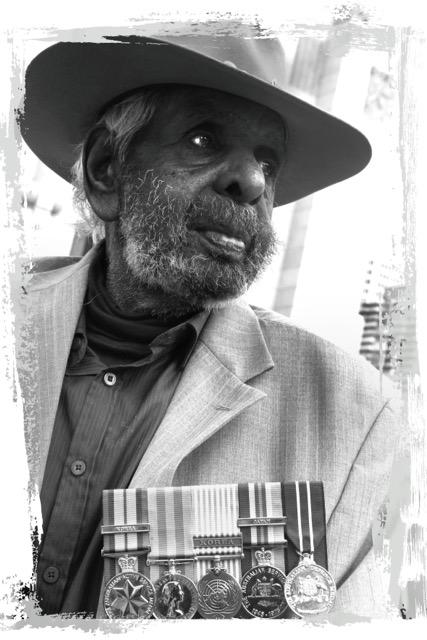
Stephen Mullawalla Dodd: "Being in the Army was one of the best times of my life." Photo: Courtesy Belinda Mason/Serving Country
Today, Dodd’s name is listed on the Memorial’s Korean War Indigenous Service list.
For Kelly, it is important to ensure that those who served during the Korean War are not forgotten.
“The Korean War has often been called the Forgotten War, but they’re certainly not forgotten anymore,” he said.
“A lot of Indigenous servicemen had already survived a war of sorts, fighting against discrimination and prejudice. And yet they were still willing to serve the country which was oppressing them as humans.
“We really rely on the families and the public to help bring these stories to the Memorial so we can share the information so people realise there’s a lot more Indigenous servicepersons in uniform than they may have realised.
“The story then starts to come out and that’s really rewarding ...
“It doesn’t matter about race, colour, religion, creed, anything like that, they all wore the Australian uniform.
“They’re part of the fabric of Australian forces in all our wars and it’s important to remember them.
“It doesn’t matter what colour you are, you served our country in war, and these stories are important.
“Everyone is an individual, and everyone sees things differently, so each story is important in its own way and should be remembered ...
“Dodd goes straight back into acting when he returns and carves out a legendary position for himself in Australian cinema. And even in his later years, he’s still acting.
“He’s an absolute legend.”
Stephen Mullawalla Dodd is one of more than 60 Aboriginal and Torres Strait Islander soldiers known to have served during the Korean War. The Memorial’s Indigenous Liaison Officer Michael Bell has been working to identify and research the extent of the contribution and service of people of Aboriginal and Torres Strait Islander descent who have served, who are currently serving, or who have any military experience and/or have contributed to the war effort. A proud Ngunnawal/Gomeroi man, he is interested in further details of the military history of all those people and their families. He can be contacted via Michael.Bell@awm.gov.au
For more information about Indigenous service, visit here.

